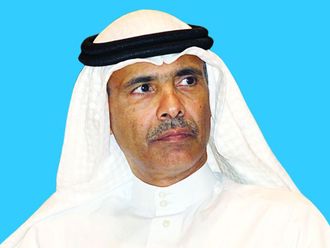It is not unfair to assert that sovereign wealth funds (SWFs) of the six-nation Gulf Cooperation Council (GCC) states serve as a blessing for the well-being of global economy at large. This declaration reflects some hard facts, namely SWF’s amount on the one hand and willingness of GCC authorities to relocate the wealth in the form of investments in different sectors across the continents. This amounts to sharing wealth of GCC countries with others, clearly an internationally-responsible conduct.
The combined SWFs of the six-nation grouping amounted to a staggering $1.7 trillion by-end 2012. This represents a comfortable 35 per cent of all SWFs in the world, collectively valued at $5.2 trillion. Effectively, GCC countries account for almost all contributions of the Middle East region.
In reality, SWF of the UAE as a nation including that of Dubai and different funds held by Abu Dhabi totalled some $813 billion at the start of 2013, according to the recently-released report by Sovereign Wealth Institute, an authority in the ranking of SWFs. Undoubtedly, this is a sizable figure by virtue of constituting more than 15 of the world’s total.
The fact that the petroleum sector contributes some 58 per cent of sources of funds for SWFs tells a great deal about the GCC exception. Suffice to say that two GCC countries, namely Saudi Arabia and Qatar, are the largest exporters of crude oil and liquefied natural gas in the world, respectively.
Economic recovery
What’s more, the forecast calls for stronger accumulation of wealth in the years ahead on the back of steady oil prices and economic recovery and progress in numerous sectors in many parts of the world. By one account, the value of external investments by GCC countries could reach as high as $3.4 trillion by end-2015, compared to less than $2 trillion at the moment.
This should not come as surprising since the accumulated GCC investments augmented by more than one third in the last five years alone, thanks in part to steady oil prices ever since efforts by Group of 20 address issues relating to the global financial crisis in 2008.
Certainly, it makes every sense for GCC authorities to put the generated wealth into use via investments in promising markets, anywhere in the planet. Needless to say, it is the seller’s market when it comes to placement of the funds, as countries attempt to entice investments to help them address socio-economic challenges. Foreign investments can help in the areas of creating jobs for locals and strengthening economic growth rates.
To be sure, some but not all GCC investments make headline in the world, as the rule of thumb remains being media shy. However, Qatar stands out for making high-profile investments like that of acquiring Harrods of the UK and Paris Saint-German football club.
Liberation war
Happily, Kuwait provides an example of a country putting SWF to use in 1990 to finance liberation war. In retrospect, the country’s authorities drew on the reserves to provide financial support to their citizens whilst being abroad during the occupation period. Yet, with nearly $300 billion in reserves, Kuwait Investment Authority (KIA) ranks number seven worldwide in terms of amount of SWF. Launched in 1953, KIA is the oldest SWF of its kind in the GCC region.
Looking ahead, the challenge is use the SWFs to help achieving noble economic goals, notably diversifying the local economies away from the petroleum sector. Thus, the aim is using proceeds of the petroleum sector to generate other sources of income for the treasury.
Undoubtedly, sufficient public oversight is essential to ensure proper uses of SWFs.
The writer is a Member of Parliament in Bahrain.












